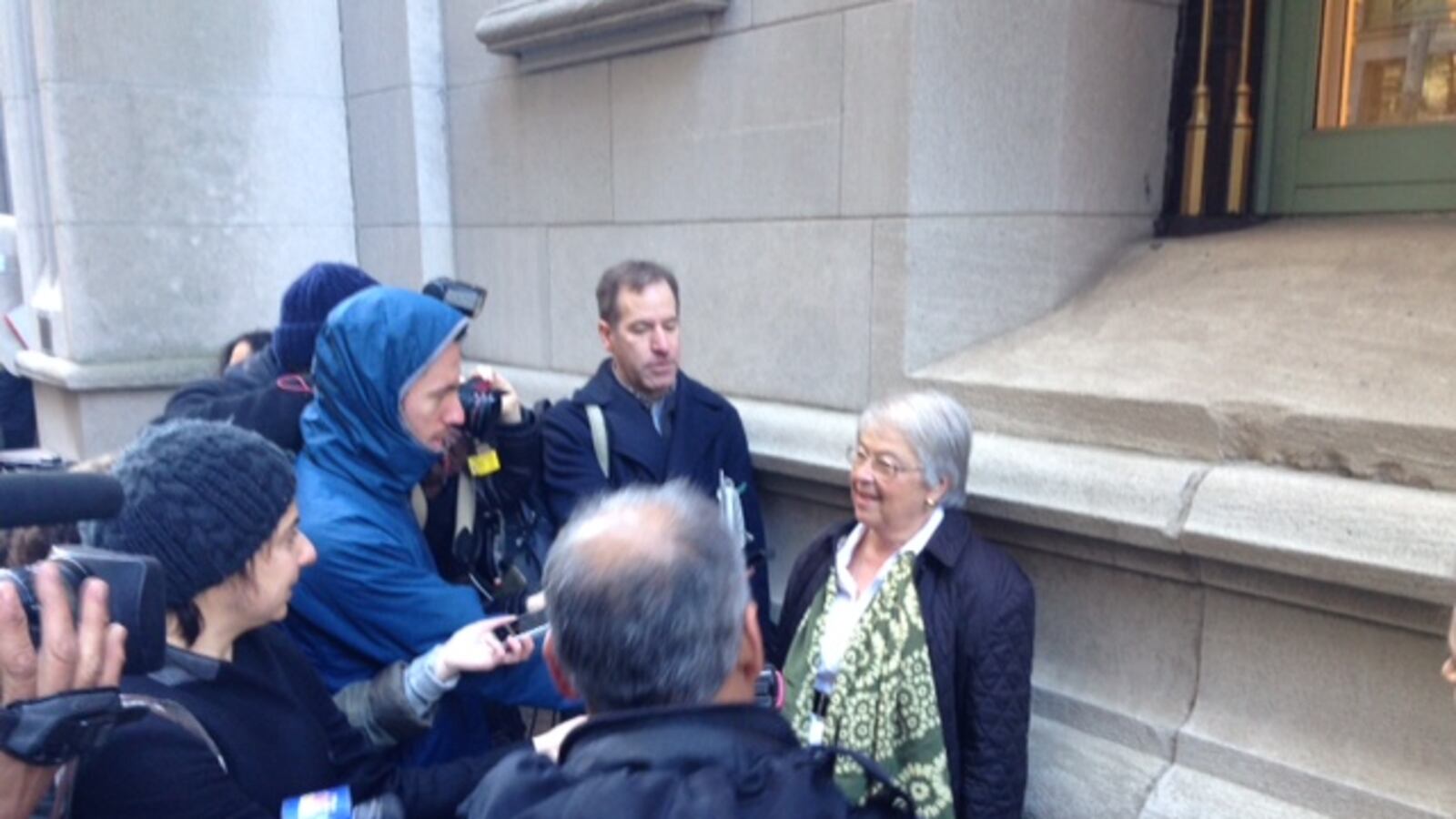None of the major policy questions looming over the city’s charter school sector got answered during the sector’s highly anticipated first meeting with new Schools Chancellor Carmen Fariña on Saturday.
But several participants, including Fariña, said they that they thought the meeting had paved the way for good relations in the future.
“There were no decisions made today, no statements of policy,” Fariña said. “But there was a lot of good will generated and a really good feeling that there are a lot of things that we’re going to find common ground on.”
Still, the event’s host, New York City Charter School Center CEO James Merriman, had sharp words for Fariña’s boss, Mayor Bill de Blasio. Merriman said de Blasio should tread carefully as he mulls an imminent decision about what to do with more than two dozen charter school plans pending for next year. The plans were approved late last year before de Blasio entered office, and he has pledged to review — and possibly reverse — at least some of them.
“Can [de Blasio] look every parent in the eye who expects to send their child to these schools in the fall and say to them, ‘The school that I will now force you to go to is going to be better than the school I am taking away from you?'” Merriman said.
The comments followed a private two-hour meeting between Fariña and more than 100 charter school leaders inside the charter center’s Lower Manhattan offices. Though the meeting was closed to the press, a public relations firm working with the center encouraged reporters to “stake out” the meeting in order to speak with attendees as they filtered out.
Photographers, cameramen, and reporters surrounded many of those people as they left. Meeting attendees said in interviews that the discussion steered clear of contentious policy issues facing them, including whether the city should charge rent to schools in city-owned buildings.
Fariña said the meeting was a chance to hear about the work that educators were doing in their schools. Among those to speak were KIPP co-founder David Levin, Uncommon Schools CEO Brett Peiser, and Renaissance Charter School founding principal Stacey Gauthier, according to people who attended.
“We talked about how we might work together,” Fariña added. “I asked them to tell me how their schools are different and special and many of them shared … ideas that they’re working on and we talked about how we might continue the conversation.”
Several of the school leaders who spoke to the press represented the 27 schools that have banded together in an effort to distinguish themselves within the 183-school sector. A joint statement from the schools, released this week, announced an intention to work with the de Blasio administration despite disagreements over policy. The statement was seen as part of a larger political effort to put distance between the more adversarial approach taken by Success Academy CEO Eva Moskowitz, who many say has become the de facto face of New York City charter schools.
“I think there are things that we all believe in that are really critical that are not being done: extended day, extended year, working with high-need students, serving poor families, empowering poor families to have better schools,” said East Harlem Scholars Academy Executive Director Jeffrey Ginsberg, who signed the statement. “I think the rest is just trying to figure out how to get there.”
Moskowitz attended the event but was among the earliest to leave. In a statement, she said she hoped the meeting would move Fariña to convince de Blasio “not to evict thousands of at risk children from their schools.”
She also criticized de Blasio for “a lack of transparency” in the way the city has reviewed next year’s plans.
“They claim to be taking public input,” she said. “However, they haven’t consulted anyone from the charter school community including the parents of charter school students and applicants. We’re totally in the dark as to what they’re even considering.”
Success is planning to open six elementary schools, three middle schools, and one high school in August. The schools are among 26 charter school openings or expansions approved for the year. Three new charter schools are also set to open in the 2015-2016 school year.
The city could announce the fate of next year’s plans as early as next week. Any revisions, if the city opts to put the plans up for a vote by the Panel for Educational Policy, need to be released at least six months before the start of school. Other ways to reverse the plans exist, but that could open the city up to litigation risks.
“It is far too late in the year,” Merriman said. “Teachers have been hired, parents have applied, they’ve missed other deadlines to apply to other schools.”
In addition to the charter schools, 16 district middle and high schools are slated to open next year as well. They include two that are being developed by Bloomberg’s Young Men’s Initiative, which de Blasio wants to continue. At least two of the high schools are grades 9-14 schools where students have access to free college courses and internship opportunities, a model that de Blasio touted in his State of the City speech.


